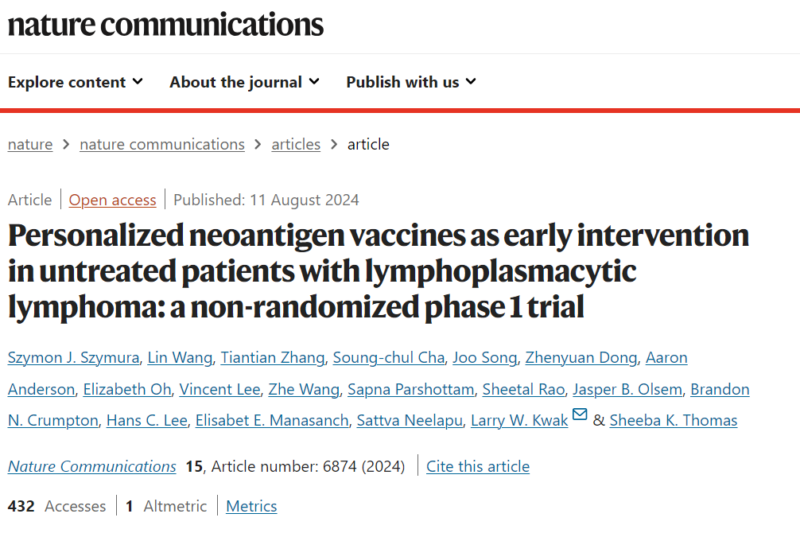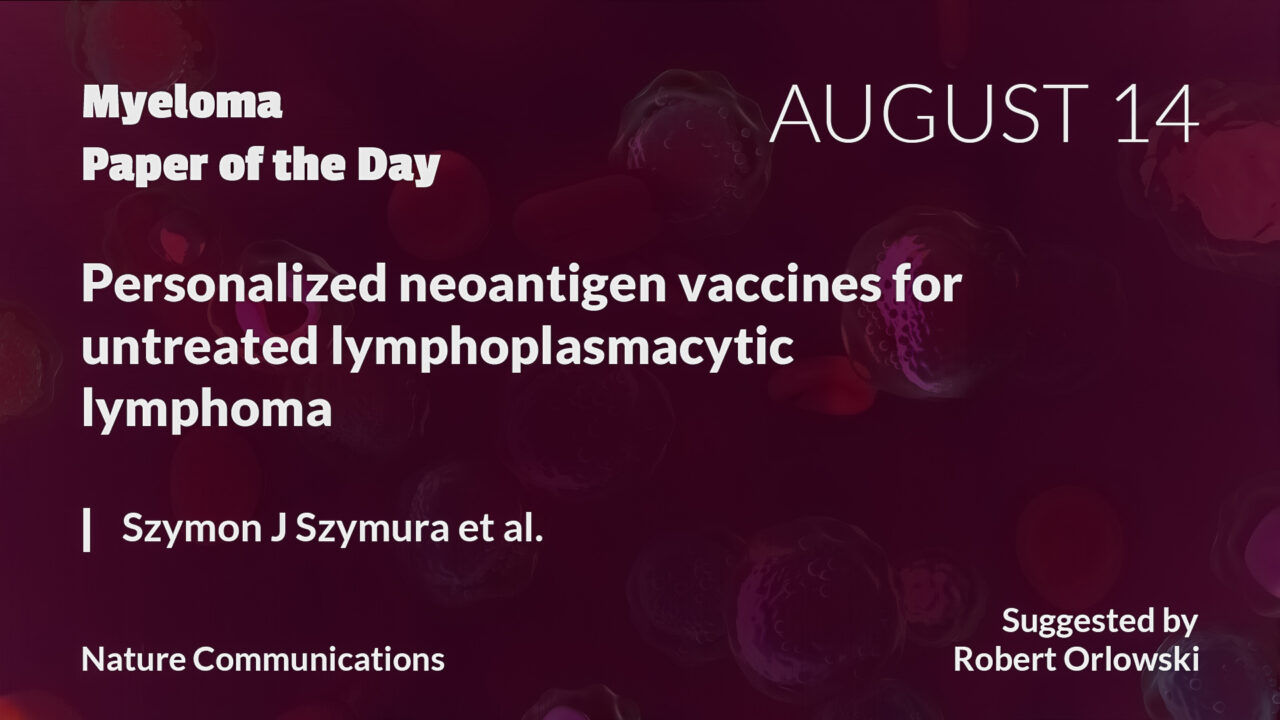Robert Orlowski shared on X:
“Myeloma Paper of the Day: Phase 1 trial of personalized neoantigen vaccine for LPL/Waldenström macroglobulinemia induces SD or better, but down-regulation of HLA class II molecules and paradoxical up-regulation of IGF suggest resistance mechanisms.”
Source: Robert Orlowski/X
Authors: Szymon J. Szymura, Lin Wang, Tiantian Zhang, Soung-chul Cha, Joo Song, Zhenyuan Dong, Aaron Anderson, Elizabeth Oh, Vincent Lee, Zhe Wang, Sapna Parshottam, Sheetal Rao, Jasper B. Olsem, Brandon N. Crumpton, Hans C. Lee, Elisabet E. Manasanch, Sattva Neelapu, Larry W. Kwak and Sheeba K. Thomas.

Other posts featuring Robert Orlowski on OncoDaily.
Robert Orlowski, M.D., Ph.D., holds multiple positions at The University of Texas MD Anderson Cancer Center, including Chairman, Ad Interim Director of Myeloma, and Professor of Medicine in the Departments of Lymphoma/Myeloma and Experimental Therapeutics within the Division of Cancer Medicine. Additionally, he chairs the SWOG Barlogie/Salmon Myeloma Committee, which is part of the National Clinical Trials Network, dedicated to advancing new therapies and understanding the biology of myeloma.
Dr. Orlowski’s expertise lies in both clinical practice and scientific research, with a particular focus on translating laboratory discoveries into effective treatments for patients. He investigates drug resistance mechanisms in myeloma and seeks to identify predictive biomarkers for treatment response. Notably, his past contributions include leadership roles in developing proteasome inhibitors like bortezomib and carfilzomib, as well as monoclonal antibodies such as daratumumab and elotuzumab.


